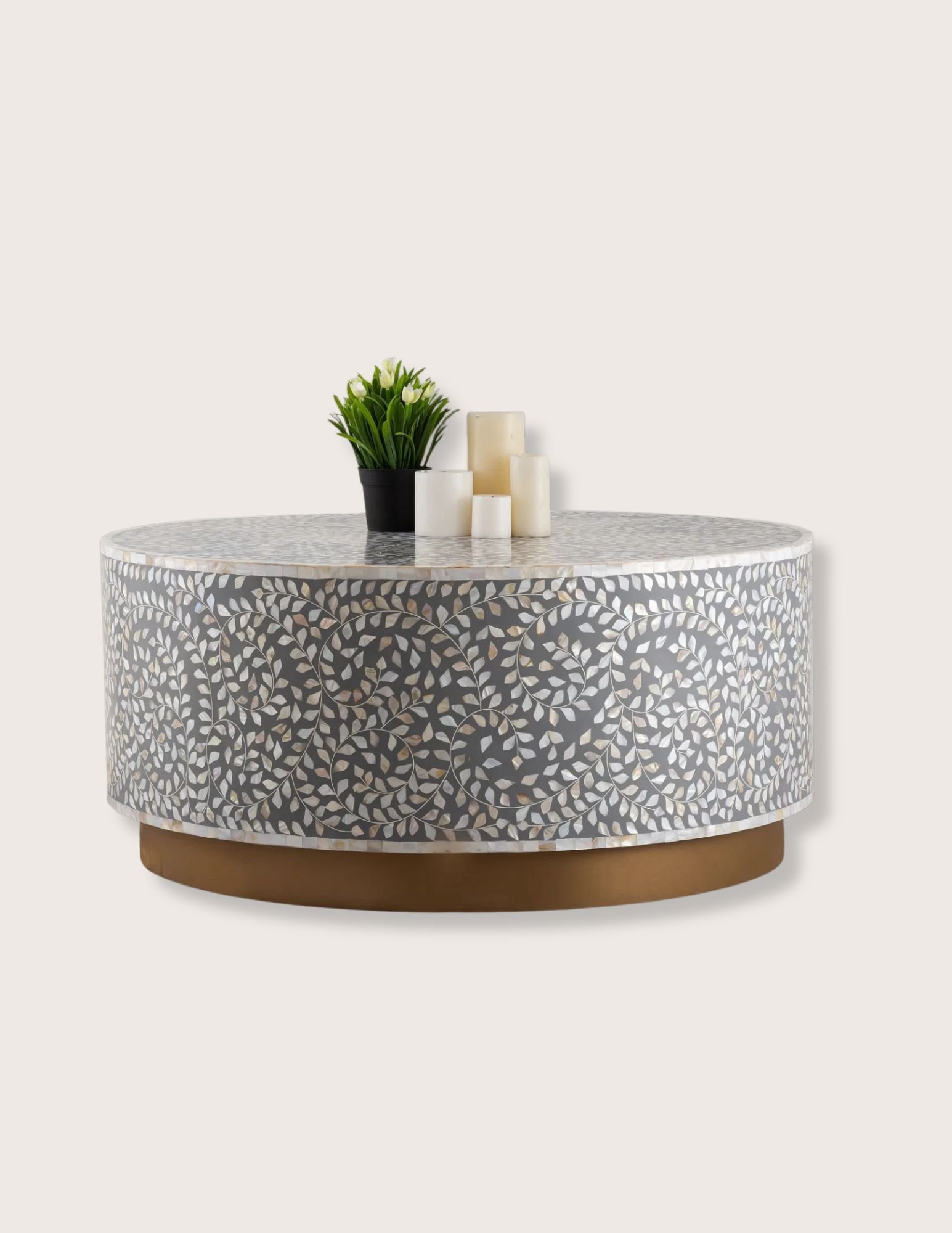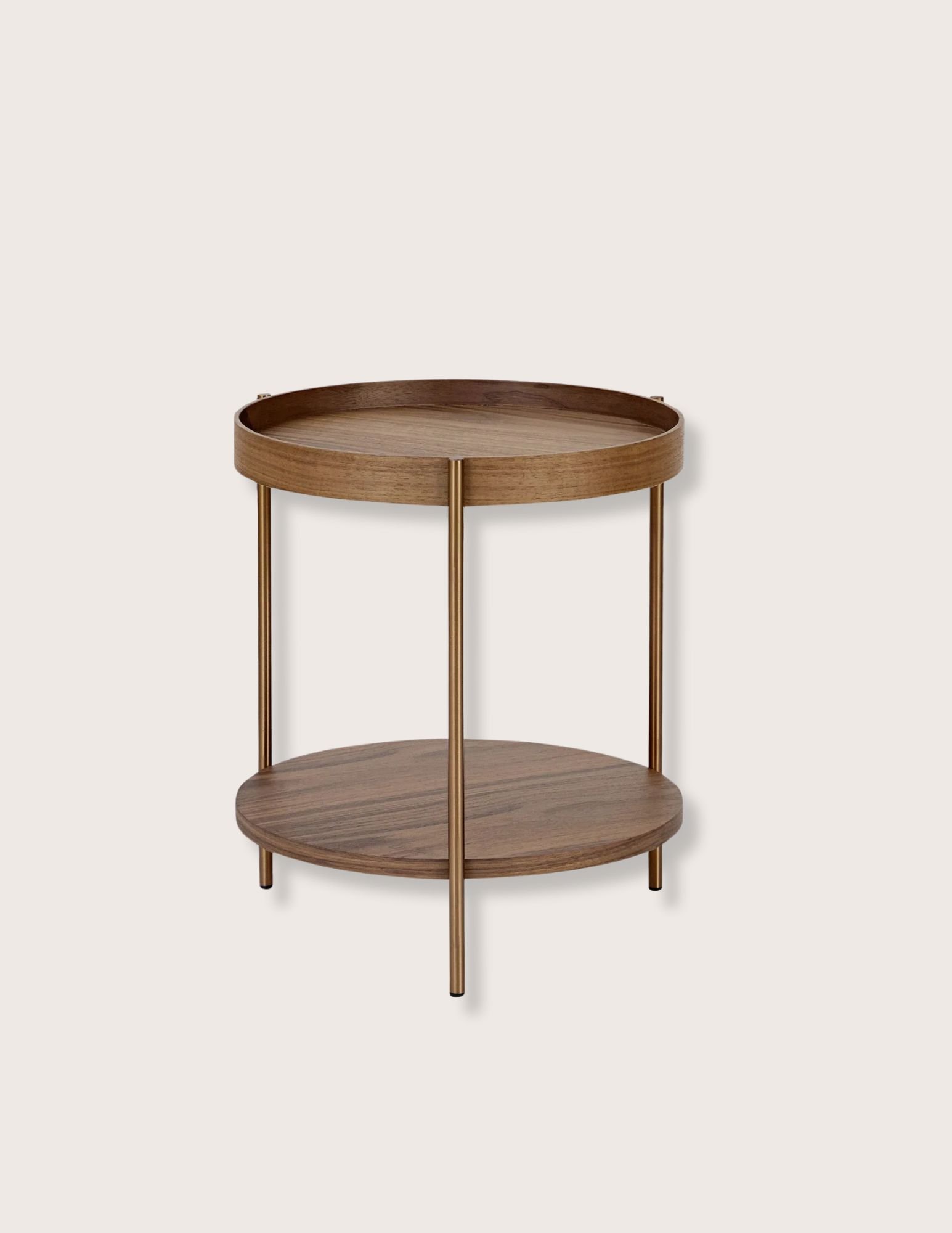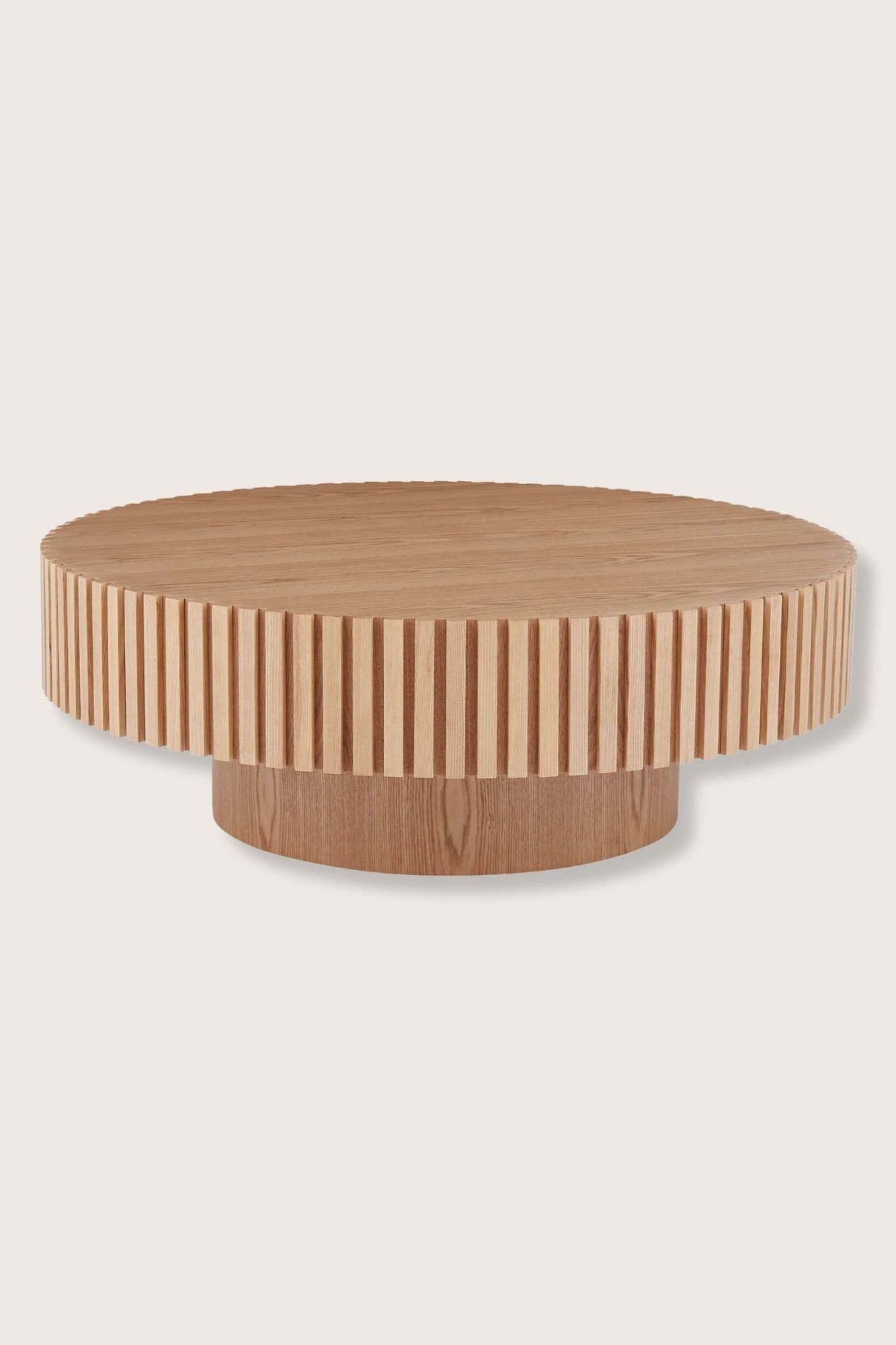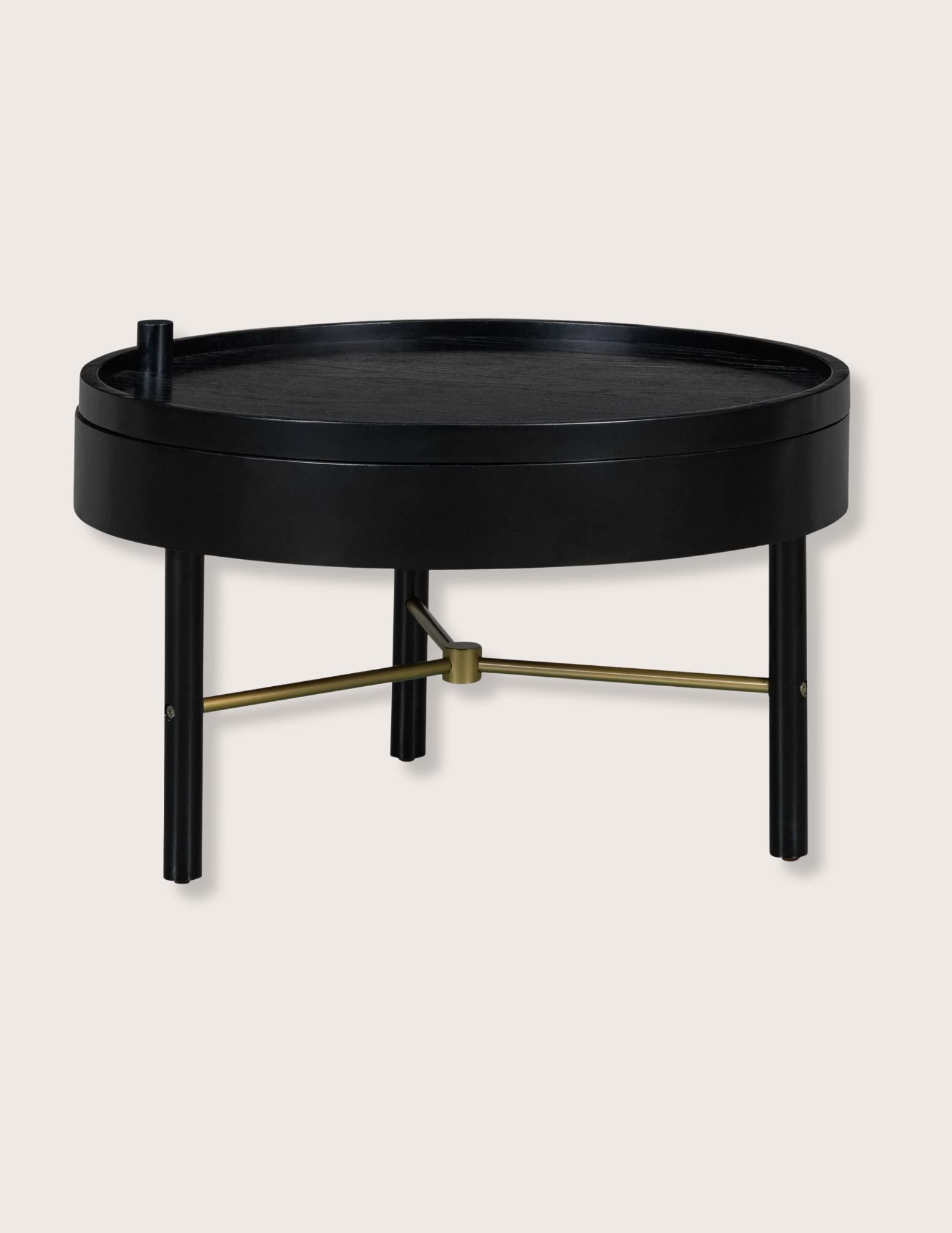 Image 1 of 5
Image 1 of 5

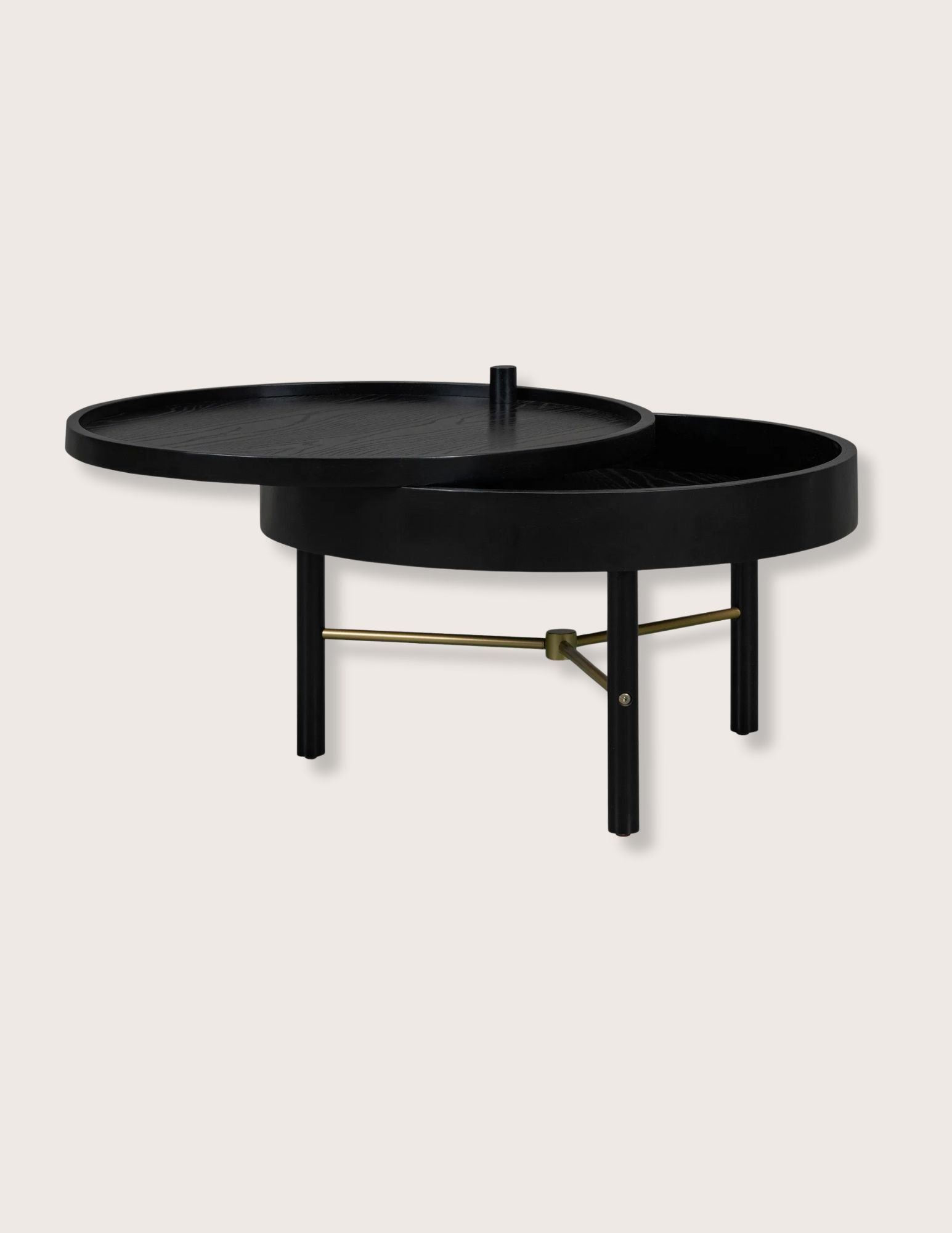 Image 2 of 5
Image 2 of 5

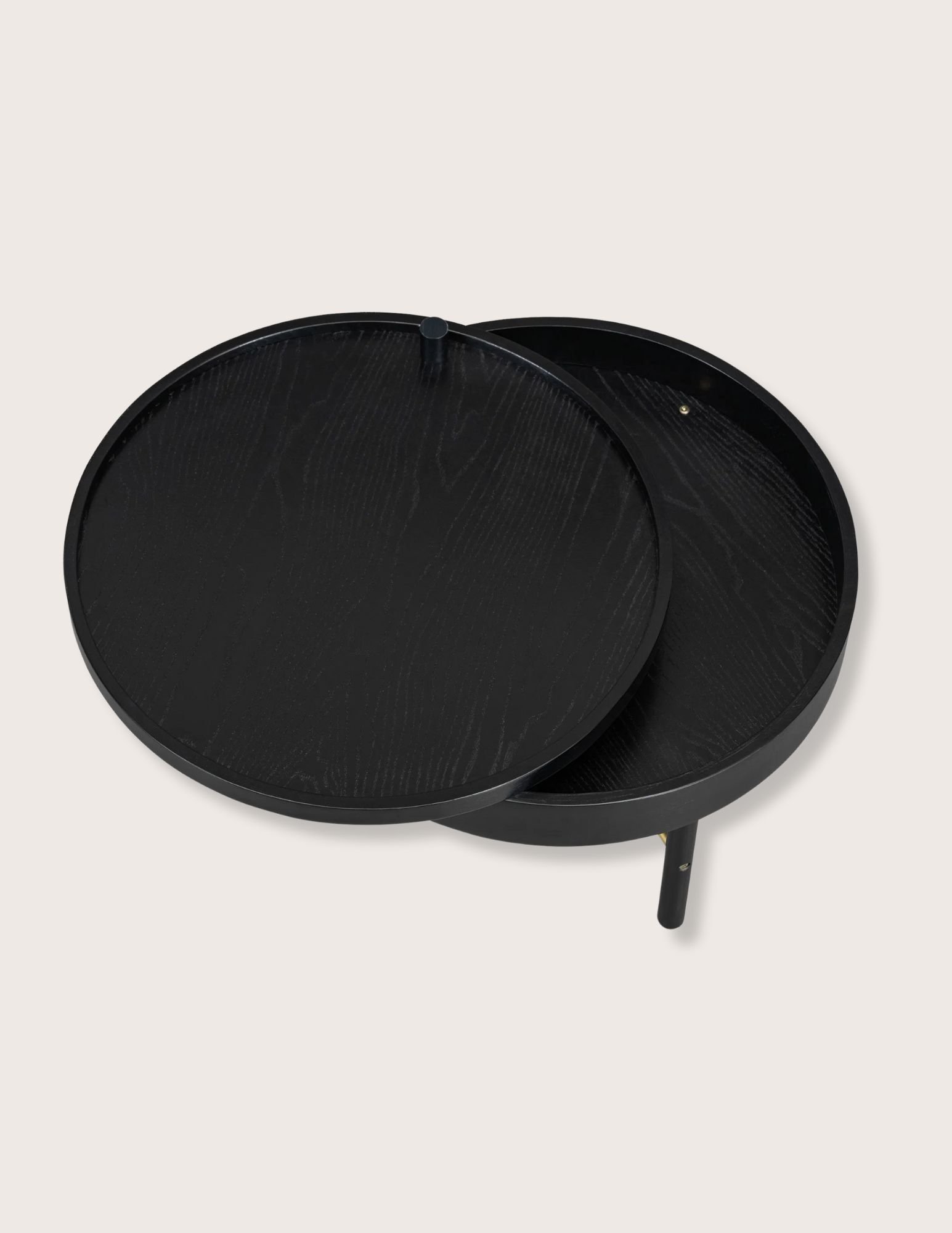 Image 3 of 5
Image 3 of 5

 Image 4 of 5
Image 4 of 5

 Image 5 of 5
Image 5 of 5






Pará Ash Storage Coffee Table
Details
Our Pará Ash Storage Coffee Table is a marvel of minimalist, stylish, and functional design. Meticulously crafted from high-quality wood, this coffee table features a rotating top design that's easy to open, revealing a hidden storage area underneath the tabletop. The bottom of the table employs a triangular metal frame, reinforcing the three sturdy legs, lending added stability to the entire structure. And it's black wood tone is a classic choice that's perfect in any room. Sleek, modern and sophisticated, yet solid and durable, the Pará Ash Storage Coffee Table is the perfect solution for real-world living and magazine-ready style.
Editors' Note
Named for the Pará rubber tree (Hevea brasiliensis) which is native to Brazil. The name derives from the state of Pará, one of Brazil's most populous states, which includes a large portion of the Amazon rainforest and is the site if the forest's highest levels of biodiversity. Prior to having its wood used for furniture, Pará rubber trees were valued primarily for their production of rubber, which wanes as the tree ages. Following Brazilian independence from Portugal, which came in 1822 and resulted in the formation of the Empire of Brazil, an uprising known as the Cabanagem erupted in Pará in 1835, and lasted until 1840. The conflict is named for the involvement of the "Cabanos" or "Cabins," a name used to refer to the poorest inhabitants of the area, which included Indigenous people as well as free and escaped people of African descent, and a contingent of impoverished white people, all of whom lived in mud huts known as cabins. Despite the name, and the fact that the conflict was largely touted as a "race war" in both the contemporary press and much subsequent scholarship, the Cabanagem was a complex, multi-layered conflict which played a large part in the formation of the modern Brazilian state, coming as it did several decades before the abolition of slavery in Brazil in 1888. The period before abolition would also see a global explosion in the demand for rubber beginning in 1879. The class of rubber barons that arose in Brazil amid this newly formed industry were brutal in their extraction of labor from the people of the Amazon, including the Cinta Larga and Kukama people, in some places depleting the Indigenous population by as much as 90% and contributing greatly to the process of deforestation in the Amazon that continues today. While rubberwood is a popular choice for furniture because it's affordable, durable, and environmentally friendly, the lessons from Pará illuminate the need for ethical sourcing of the material.
Details
Our Pará Ash Storage Coffee Table is a marvel of minimalist, stylish, and functional design. Meticulously crafted from high-quality wood, this coffee table features a rotating top design that's easy to open, revealing a hidden storage area underneath the tabletop. The bottom of the table employs a triangular metal frame, reinforcing the three sturdy legs, lending added stability to the entire structure. And it's black wood tone is a classic choice that's perfect in any room. Sleek, modern and sophisticated, yet solid and durable, the Pará Ash Storage Coffee Table is the perfect solution for real-world living and magazine-ready style.
Editors' Note
Named for the Pará rubber tree (Hevea brasiliensis) which is native to Brazil. The name derives from the state of Pará, one of Brazil's most populous states, which includes a large portion of the Amazon rainforest and is the site if the forest's highest levels of biodiversity. Prior to having its wood used for furniture, Pará rubber trees were valued primarily for their production of rubber, which wanes as the tree ages. Following Brazilian independence from Portugal, which came in 1822 and resulted in the formation of the Empire of Brazil, an uprising known as the Cabanagem erupted in Pará in 1835, and lasted until 1840. The conflict is named for the involvement of the "Cabanos" or "Cabins," a name used to refer to the poorest inhabitants of the area, which included Indigenous people as well as free and escaped people of African descent, and a contingent of impoverished white people, all of whom lived in mud huts known as cabins. Despite the name, and the fact that the conflict was largely touted as a "race war" in both the contemporary press and much subsequent scholarship, the Cabanagem was a complex, multi-layered conflict which played a large part in the formation of the modern Brazilian state, coming as it did several decades before the abolition of slavery in Brazil in 1888. The period before abolition would also see a global explosion in the demand for rubber beginning in 1879. The class of rubber barons that arose in Brazil amid this newly formed industry were brutal in their extraction of labor from the people of the Amazon, including the Cinta Larga and Kukama people, in some places depleting the Indigenous population by as much as 90% and contributing greatly to the process of deforestation in the Amazon that continues today. While rubberwood is a popular choice for furniture because it's affordable, durable, and environmentally friendly, the lessons from Pará illuminate the need for ethical sourcing of the material.

Additional Details
Single storage coffee table
Color: Ash
Material: Metal, Rubberwood
Dimensions:24" x 24" x 15.4"
Weight: 19.8 lbs
Imported
Made to order
Ships to the US in 3-4 weeks

